Hubbard's Follies
Folly:
Definition 2 a foolish act, practice, or idea; something silly.
Definition 3: a costly but foolish undertaking.
From World Book Dictionary, 1980 edition copyright© 1979, by Doubleday & Company, Inc.
L. Ron Hubbard (1911 to 1986; http://scientolipedia.org/info/L_Ron_Hubbard ) did some marvellous things which I and many others have been very thankful for. These are recorded elsewhere. This little article record some of the things I'm aware of which he did which didn't seem to me to be so sensible. There were probably lots more, especially in his youth and his young days, a time when many of us can produce a few follies. This little article records some of them which I've been aware of. They do not, in my opinion detract from the philosophical and practical contributions he has made in the field of increasing ability and understanding life and what it's all about. Better to have tried and failed, than never to have tried.
Forming a Political Party in USA
Jeff[erson] Hawkins, author of Closing Minds, wrote the following to me just now (February 2016) in an email (possibly what Jeff mentions below is traceable in the archive copies of the American Scientology membership magazine Ability):
- in 1955, he [Hubbard] tried to start a political party in DC. It was at one of the Congesses, I forget which one, but I heard the tapes. He was trying to drum up enthusiasm to start his own political party. The idea bombed so badly that those tapes were removed from the Congress and buried deep in the archives. I ran into them when I was on a project to catalog the lecture archive. I wish now that I'd sneaked out copies!!
Have You Lived before This Life 1958

The Fifth London ACC (ACC = Advanced Clinical Course) was a six weeks course for trained Scientology auditors which was held in the autumn of 1958 in premises at 7 Fitzroy Street, London. The students were required to run on each other the most heavy traumatic incident to be found using the emeter. There was one auditing command: "What part of that incident could you confront?". After the course a staff auditor at the Hubbard Guidance Centre, London org, Maura Chamberlain, was assigned to compile accounts by both preclears and auditors into a book which was called Have You Lived before This Life? The result is 180 page book which includes some most bizarre accounts.
It was thought (presumably by Hubbard) that the public would have a high interest in earlier lives, that this book would interest them and get people into Scientology, and indeed the first pages of the book contained the names addresses and in many cases telephone numbers of 34 of the auditors on the course. Later editions of the book did not have these addresses and names. Hubbard was very pleased with it and proposed a second book with the title Where Have You Been Buried. Volunteers were expected to locate on an emeter where they had been buried and then verify by looking at gravestones. But this never came about.
Mission into Time 1973
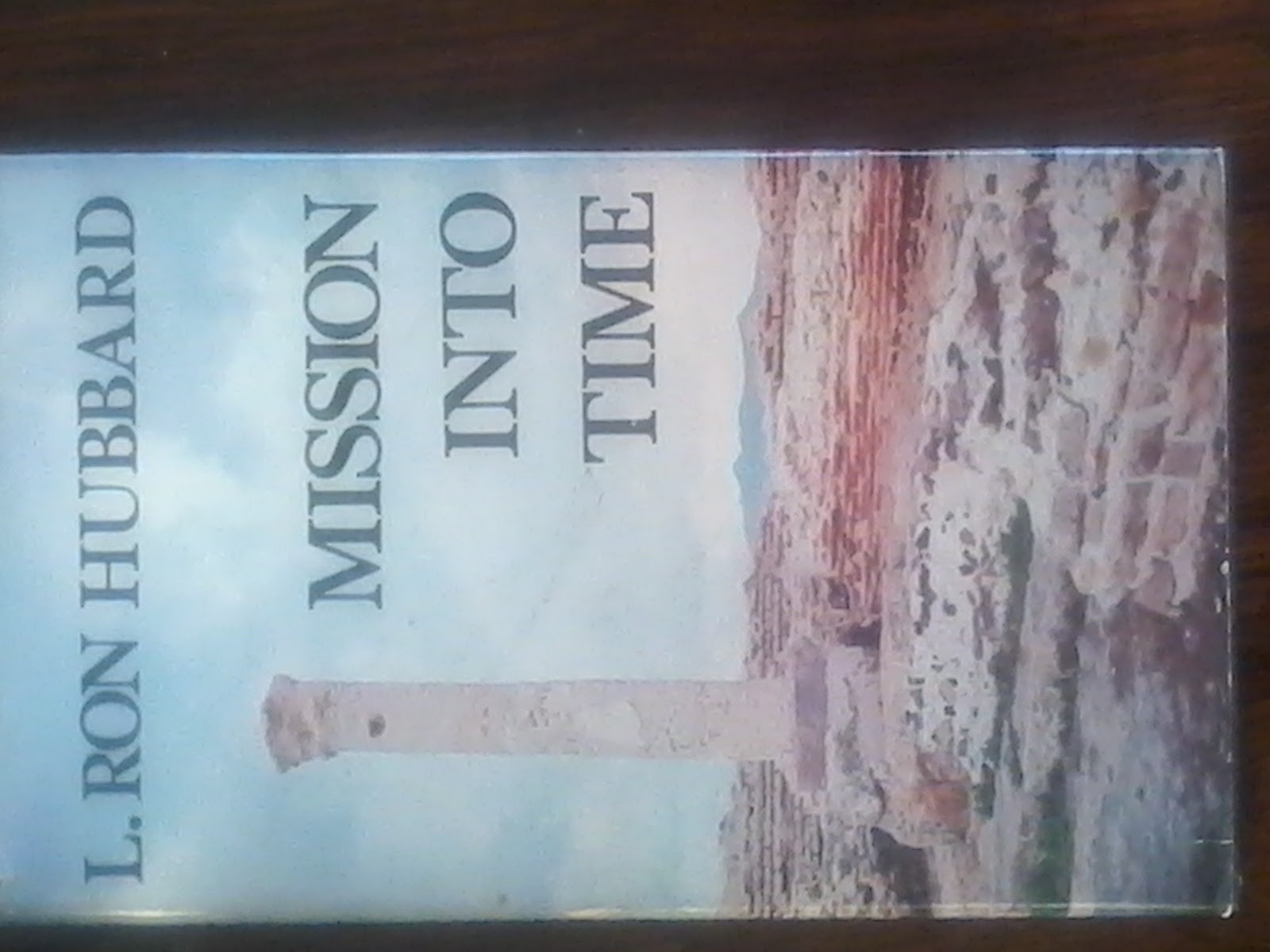
Ron Hubbard believed that in earlier lives he had buried treasure in various places in the Mediterranean. This hundred page book records an expedition which Hubbard made with the help of a Sea Org ship and crew to establish the truth of this belief.
Hymn of Asia, an Eastern poem by L. Ron Hubbard.
This approximately 150 page hardbound calligraphic book, first printing 1974, which includes in the introduction the sentence "Now at last, in the 1046 lines of the poem Hymn of Asia, is the statement that this hope has been achieved – You can be free."
This is followed by the statement (in the introduction): "This moving hymn was written for a convention in about 1955 or '56, coincident with celebrations in the Buddhist world of the 2,500th year of the Buddhist era." I (Antony Phillips) was knocking around the borders of Scientology at that time (55/56) and don't remember hearing a whisper of that Buddhist convention or of Ron writing a poem for it, so it's a bit surprising to hear about it in 1974. [A search should be made in the archive copies of the American Scientology membership magazine Ability for any references to this.] As is usual in Scientology books there is a string of dates where copyright was made and the first of these is 1965 (1965, 1972, 1973, 1974).
.jpg)
We do not know who the editors are (a common practice in Scientology to only name L. Ron Hubbard) and in this book the only people who are named, apart from the author L. Ron Hubbard, are the designer, the design consultant, the artwork provider and the calligraphist.
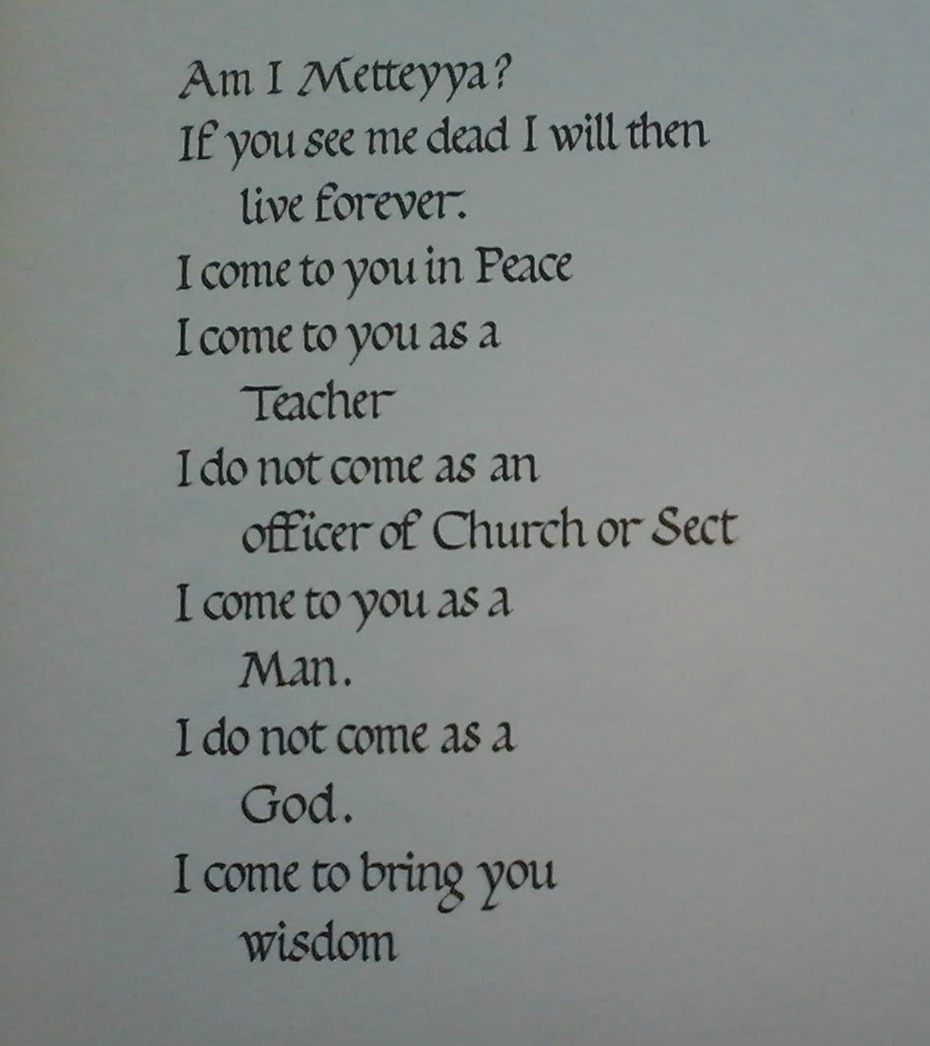
This would presumably be the author, L. Ron Hubbard. Apart from the calligraphic text there are illustrations sometimes partially in colour.
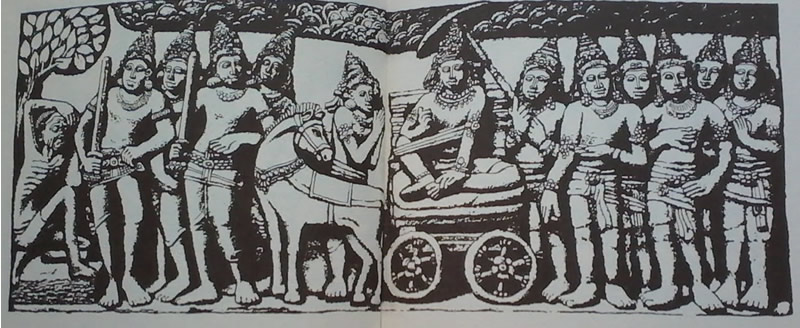
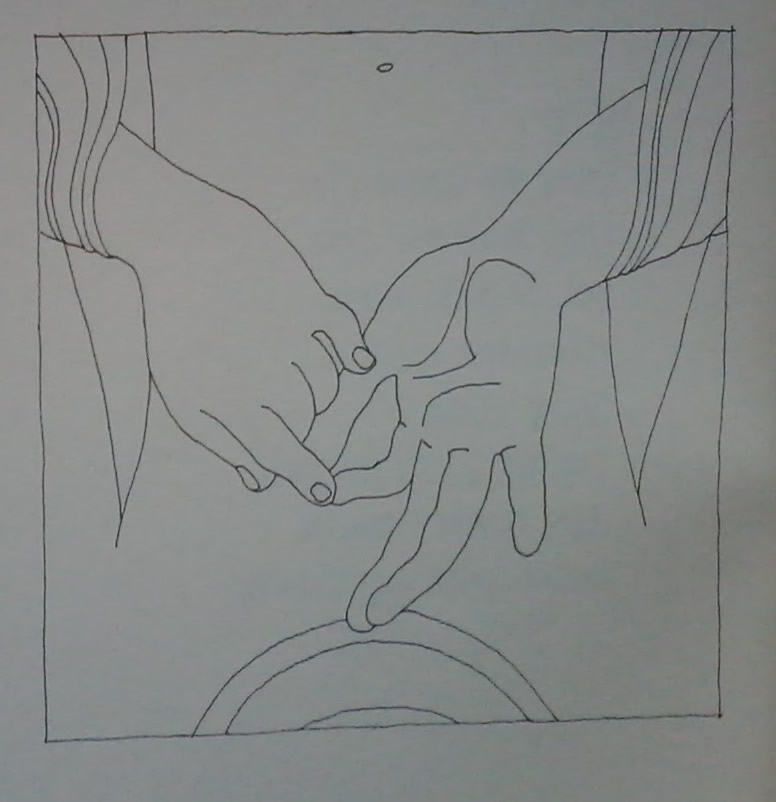
Part of the text has eight pages, or double pages, each devoted to one of the eight dynamics (word dynamic is not used). The following is the one devoted to the 7th dynamic
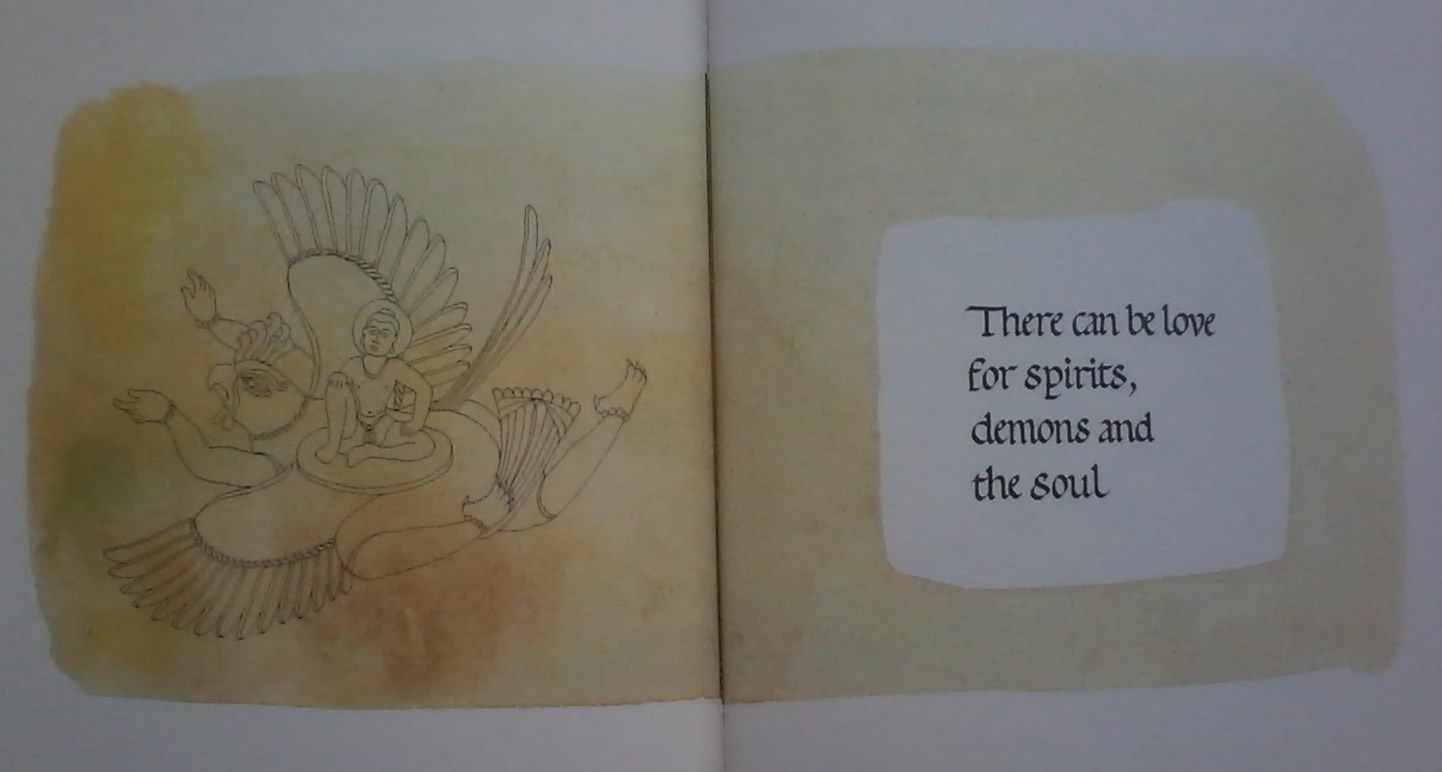
There is an appendix at the end describing L. Ron Hubbard. and ending with the sentence "Red-haired, dynamic and friendly, L. Ron Hubbard today unrelentingly carries on his work of bringing spiritual freedom to all beings on this planet."
At the time the book was sold I experienced a good deal of mystery about it, and discussion amongst my friends our speculations on what was going on. It was sold vigourously by the staff of my local Scientology org and there was the unanswered question as to whether Ron Hubbard was claiming in the book to be the Buddha returning as predicted. Could he really claim to be the Buddha, and why was he doing so in such a sort of covert way and what were we supposed to do or think?
I haven't checked this, but apparently the whole book is available digitally at the following link: https://wikileaks.org/wiki/Scientology_cult_Hymn_of_Asia . Under Download: File, I found only (in its entirety) the introduction, which itself is interesting. I have not tried the magnet or the torrent items. One of the links I found on Google states that it was only sold from AOs which could well be true as I got my copy from the AO here in Copenhagen.
Can We Ever Be Friends?
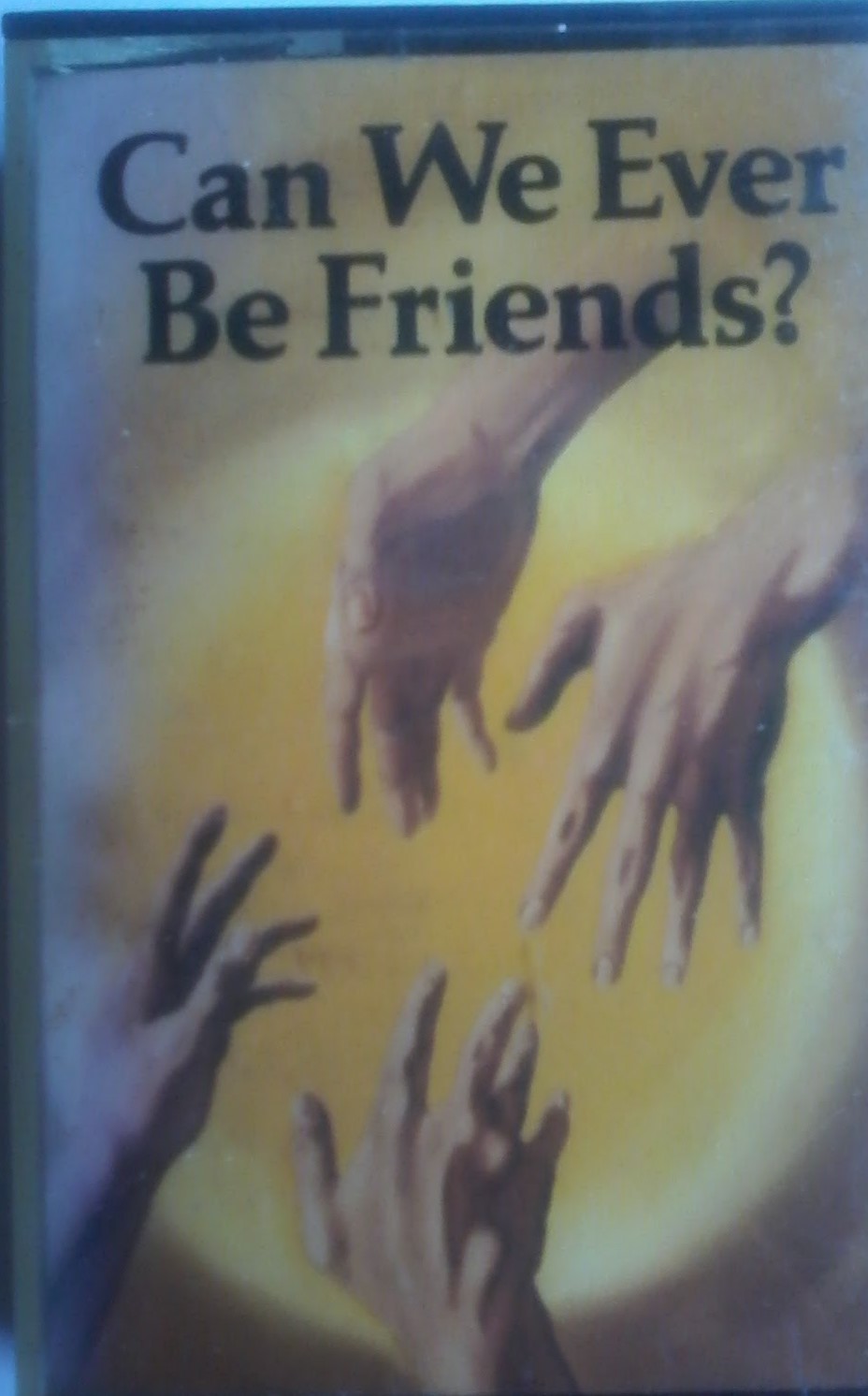
Basically this is a cassette tape. On one side there is introductory music and there is an address (talk) on the first side continued on the second side. The background to this is that (as happened many times before and after) friends and relations of Scientologists had become alienated because of bad publicity and behaviour of Scientologists and Scientology. I believe the script was written by Ron, but at any rate he monitored very strictly how this tape was spoken. A friend of mine, Ole Smidt, recorded the Danish version, which was then sent to Hubbard, who monitored it and sent back instructions as to how it was to be spoken (as regards to tone level, speed of speech, etc.). What I remember was a good deal of antagonism in the way it was spoken. One was supposed to give it to friends and relations who had become alienated with one and like magic it was supposed to clear up your relationship with the person. I came across people who were unwilling to give it to their friends or relations, and I can well understand that. The copyright date is 1977. A softcover booklet was issued at the same time, approximately 60 pages. It contains a good deal of attacks on psychiatry, extracts from letters and newspaper articles and the copy I've got has in the middle on light brown paper translations into Danish, German and Swedish.
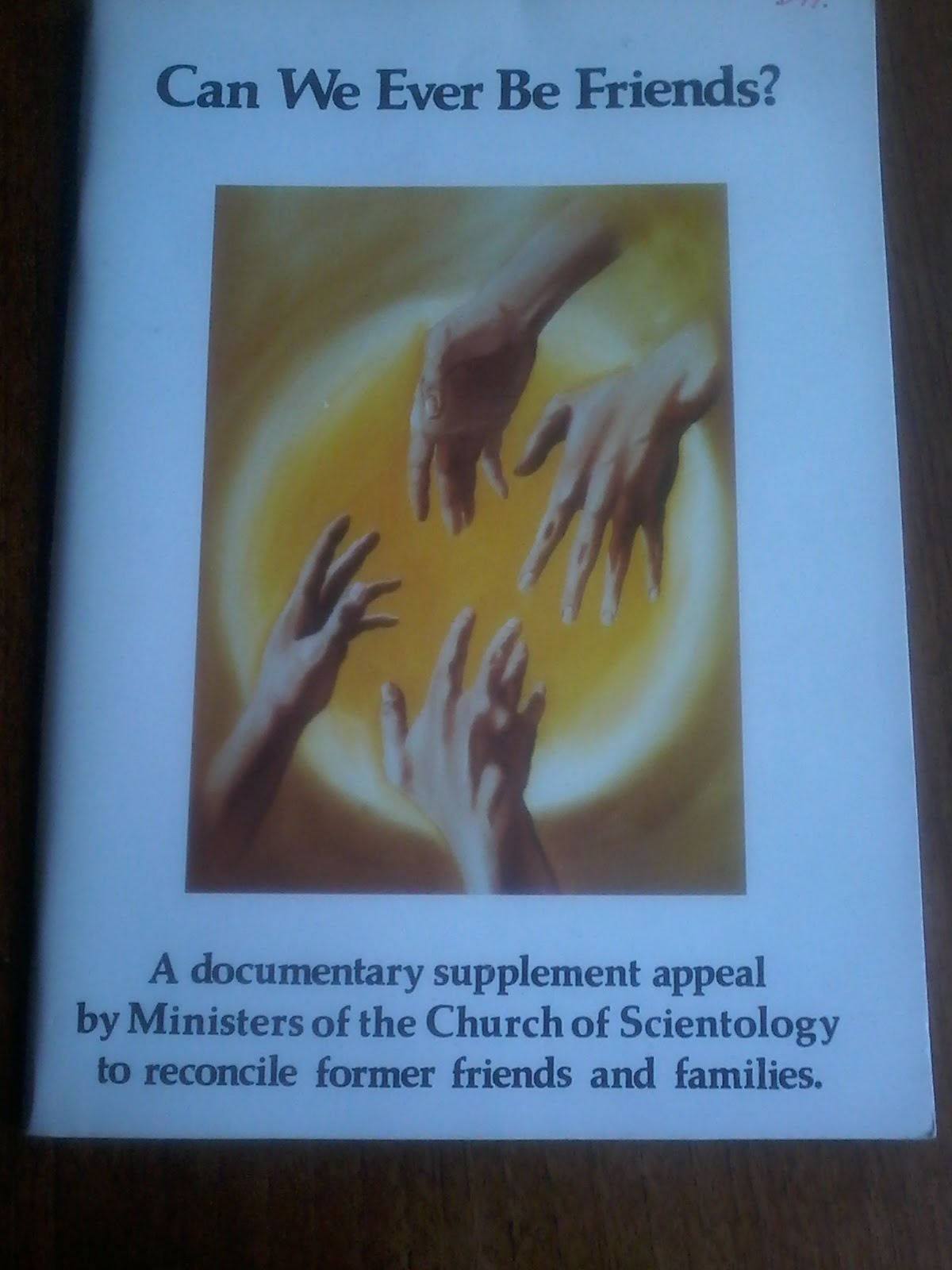
Book Covers.
.jpg)
See more pictures etc. at: http://www.antology.info/index-23.html
The idea behind this is based on material which was supposedly discovered in researching Scientology's OT level III. These gaudy, and somewhat peculiar, coloured book jackets were issued based on the idea that the sight of them would re-stimulate the OT III incident in such a way as to get the person to buy the book and be attracted into Scientology. I was working at Scientology Publications Org at the time and this was regarded as an extremely important LRH order. It is to be noted that more recently published versions of these books have not had these covers on them.
I can remember a staff member of Pubs Org describing how he had on entering Denmark from abroad gone through the customs with an emeter in his suitcase which for some reason he didn't want the customs people to look at. He described to fellow staff members how he had opened the suitcase, prominently displaying the book cover with a picture of a dog on it and the customs officer told him to shut the suitcase and pass on, and this was regarded by the little group of Pubs Org staff members as a triumph of the hypnotic powers of the new book covers!
Scientology Passport.
See: http://www.antology.info/passport.php where pictures of my passport are displayed and there is a description of it. A lot of time and energy was spent on this at the time!
Ant Postscript
In working on getting this page together I have thought/speculated a good deal on why Hubbard did some of these to me completely crazy things when in some other areas he produced miracles. My thoughts go a little bit beyond just the items in this article. One of the thoughts I have had for a few years now, having studied Jack Horner's and Dennis Stephens' accounts of the early Scientology days (both to be found now in Scientolipedia), together with other data on the events in 1950/51, is that in fact the events around the publication of Dianetics: Modern Science of Mental Health were traumatic for Ron. The "traumas" (perhaps, more correctly, periods of extremely high stress and confusion, associated with insufficient sleep and numerous interrupted communications cycles and having to handle somewhat frantic and restimulated people – in large doses) were actually two; the one traumatic experiences was associated with the fact that the book was (probably) far more popular than Ron's wildest expectations and he had no plans for dealing with the demands which it produced. Jack Horner says that there were 500 people wanting to come on a course. That sort of thing takes a bit of organising and a pulp fiction writer hasn't had much experience in organising on that scale with a mixed bunch of ordinary people (not "indoctrinated" sailors). The other traumatic thing, and here it is somewhat supposition, is that established professions felt themselves threatened and some of them used underhand means to handle the apparent (to them) threat; such as sending unstable (possibly drugged or "brainwashed") people as preclears who "span in" (became enturbulated and enturbulative) and caused confusion and doubt amongst the ordinary Dianeticists. His environment was very unstable and full of stress after the book became a bestseller.
There is also the possibility (see:http://ivymag.org/cyberivy/IVy_106.pdf page 8) that he did things during the Second World War which were covered by official secrets regulations with strong penalties (not always legal but also underhand CIA/FBI activities like killing him) if he should reveal them and this would have given him a withhold which could not have been revealed in auditing sessions. Having something you can't tell your auditor detracts from the effectiveness of auditing.
Another factor is that Ron was a highly charismatic figure. In his case this played out in that he collected people around him who listened wonderingly and adoringly to all he said. He was a successful pulp fiction writer, and this at the time of the depression where it would not have been easy to sell one's work, he knew how to reach people's reality, engage their attention and attract admiration/adoration. This could have led him to believe that he was better than he was, cleverer than he was. In later years he developed a strong temper so that his henchmen, followers, and staff members were hesitant to give him cause to be cross with them. This could have meant that he often really did not get to know when things he suggested didn't work or worked poorly or sporadically. If some things worked sporadically maybe he only get to know of the successful times
That is a little background to my thoughts about these so-called follies.
Really, basically, there are two things I see here. One of them is a belief that he was (nearly) infallible. The Scientology passport thing is crazy. Perhaps the only crazy thing about it is calling it a passport. For the unspoken general idea in Scientology (to which I now disagree) is that you can achieve a near-perfect state by following a path which is similar or the same for everybody – you are regimented. Given that, a book that delineates which of those steps you have taken is not so crazy but in my mind the premise is wrong.
Taking the book covers (aiming to mesmerise folk into Scientology) and the Hymn of Asia book these appear to have elements of a (perhaps group) service fac, an aim to make self/the group right, to dominate others. Incidentally it seems to me that the issue date of the book 1974 may have coincided with a growing interest in Buddhism and Eastern religion which wasn't there in 1955/6 – Hubbard had his attention on the public's reality.
Extra Postscript
I just ran across in a wild search of my files this little comment by The Pilot on Ron Hubbard's "Simon Bolivar letter", officially known as The Responsibility of Leaders, HCO Policy Letter of 12th of February 1967. The following inset part is a straight quote from The Pilot.
- > | Always push power in the direction of anyone on whose powers
- > | you depend. It may be more money for the power, or more ease,
- > | or a snarling defense of the power to a critic, or even the
- > | dull thud of one of his enemies in the dark, or the glorious
- > | blaze of the whole enemy camp as a birthday surprise.
- > | - L. Ron Hubbard
- This is, of course, the Simon Bolivar policy from the late 1960s, and
- a number of posts have already mentioned that fact.
- The policy is quite long, entertaining, and has a vicious twist to
- it.
- It is a brilliantly written justification for a leader taking
- absolutely NO RESPONSIBILITY for the actions of his lieutenants.
- Basically he says that Bolivar died poor and abused because he
- betrayed his power base (land barons or something like that) as
- part of his program to better the peasants. I know nothing of
- Bolivar, but if Hubbard's picture is correct, I would say that
- Bolivar was true to his goals and Hubbard is simply saying, nice
- guys finish last so let's be real shits instead. Now maybe there
- was some reasonable compromise or a smarter way of operating that
- Bolivar missed so that he could have done well personally and been
- true to his goals at the same time. But Hubbard's way is the worst
- of the alternatives since it loses the whole purpose of Bolivar's
- revolution.
- It was simply a Justifier issued at a time when Hubbard was
- establishing the Sea Org and giving a whole bunch of screaming idiots
- dictatorial powers over the dedicated old time Scientologists.
- Best,
For a more serious look into the background of this part Hubbard's behaviour (certainly not fully comprehensive in that direction) read the following book:
